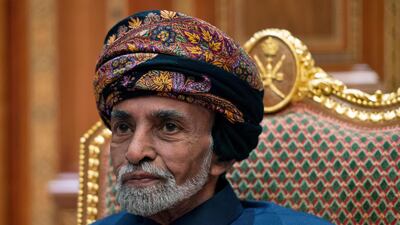Oman’s Sultan Qaboos bin Said, who died earlier this month, left instructions to fund training programmes for 150,000 students to help them land jobs.
The official Oman News Agency (ONA) said on Wednesday that the training would be organised under the National Youth Program for skills development.
“The programme seeks to prepare young adults with the attitudes, skills and knowledge needed to deal with different life situations, based on merging modern concepts with the digital educational content in an entertaining and inspiring manner,” ONA said.
The training, to be held over the next five years, aims to equip students with “the right attitudes, skills and knowledge to be successful in the future world of work and the fourth industrial revolution.”
While the report didn’t disclose the amount of money left by the late Sultan Qaboos, the training experts estimated it would cost around 6.5 million rials (Dh 62 million).
“It a very big budget,” a training expert, who asked not to be identified, told The National.
The expert said the programme will be implemented at different stages to secondary school students in grade 10 and 11 selected from different schools in Oman.
The Diwan Royal Court, the former Sultan’s private office, still looks after his philanthropic donations to various charitable programmes.
The final act of generosity is not out of charter for the late sultan.
In 2013, he personally funded the building 230 million rials (Dh 2.26 billion) construction of 2,000 houses for low-income Omanis in different parts of the country.
Recruitment experts said the objective of the new money was to prepare school students for employment and to be able to take the place of expatriates currently employed in the sultanate.
“Many companies still prefer to employ expatriates because they say new Omani graduates lack the essential soft skills like communication, critical thinking and expressive skills. The training will help young graduates with soft skills to secure jobs and replace foreign workers,” Hajer Al Khanjari, a job consultant working for Capital Investments Company, said.
Latest official statistics show over 40,000 Omanis were looking for jobs in 2019, about 8 per cent more than the previous year.
Some 2 million expatriates work in the country’s private sector, making up nearly 70 per cent of the total workforce in the country.



















